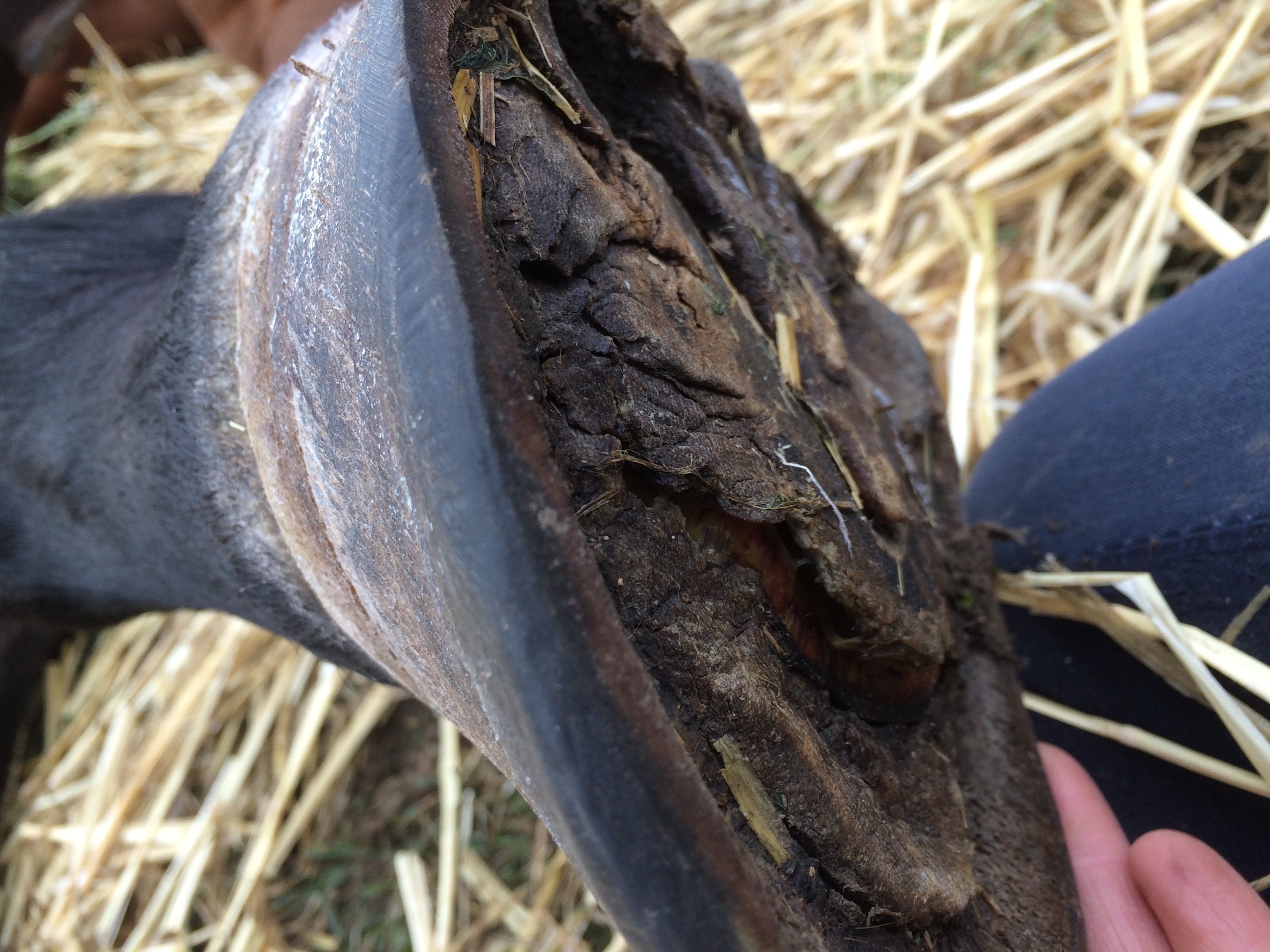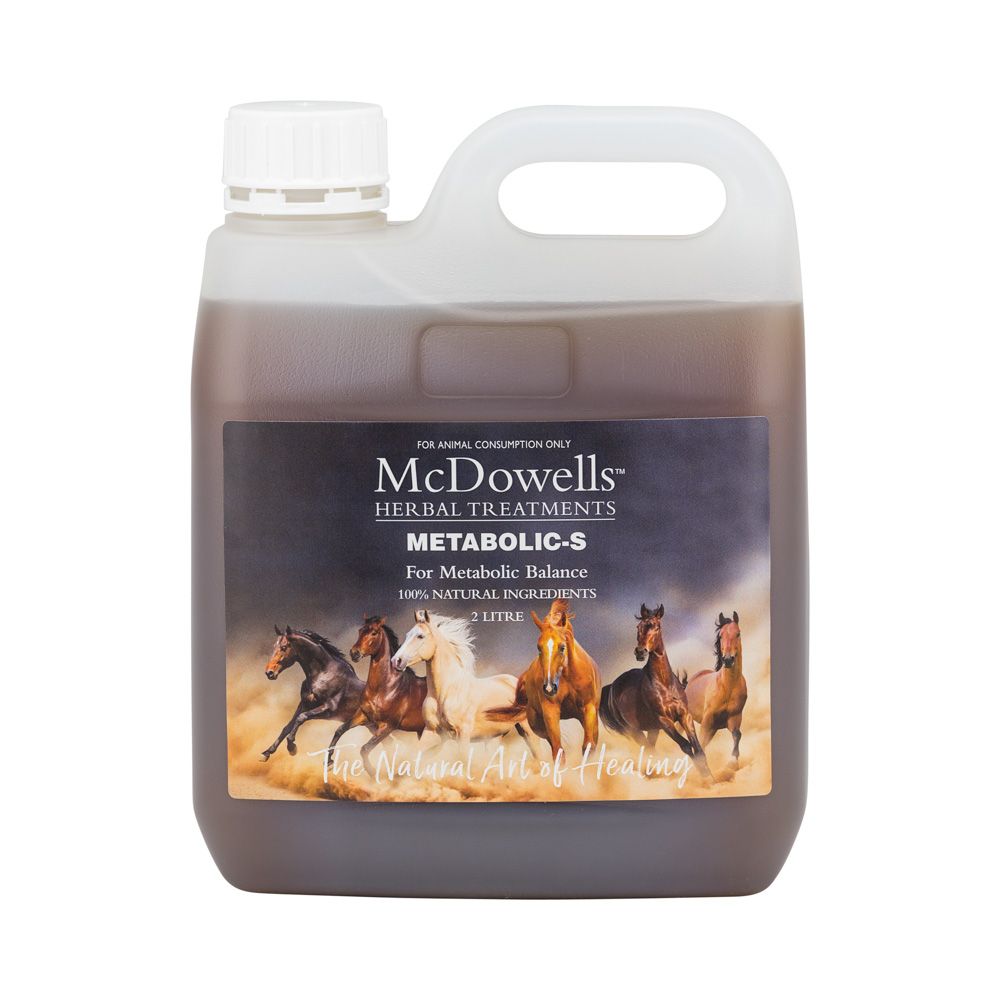Laminitis is a painful condition of the feet. The actual word laminitis means 'inflammation (itis) of the sensitive laminae (lamin)'. These laminae are the membranes that hold the bone of the foot (pedal bone) in place inside the foot. Laminitis can occur in any horse at any time of year but most commonly affects ponies and show horses in the spring, when new lush grass starts growing. Laminitis as a condition is not fully understood by scientists and vets.
In advanced laminitis, the coffin bone becomes detached from the horny wall and may rotate or sink. In lay terms, this is known as "founder", from the maritime term meaning 'to sink'. The terms "laminitis" and "founder" are used interchangeably. However, founder usually refers to a chronic (long-term) condition associated with rotation of the coffin bone. Whereas, acute laminitis refers to symptoms associated with a sudden initial attack, including pain and inflammation of the laminae. Technically, when laminitis causes damage to the laminae, founder is the result however laminitis does not always result in founder. The threshold between laminitis and founder is widely variable among individual horses.

Pedal bone penetration
Causal factors of laminitis may include the following:
- Excess of carbohydrates (too much grain or lush pasture).
- Excessive weight, particularly unilateral weight. Draft horses are particularly prone to laminitis.
- Gastro/intestinal problems and stress/shock. Make changes to routines slowly and progressively to avoid stress.
Management factors:
- transportation,
- work on hard services,
- drinking cold water when over heated and bedding of Black Walnut shavings.
Endocrine abnormalities
- High fever
- Severe colic
- Corticosteroids
Symptoms of Acute cases:
- Extreme lameness and unwillingness to move forward usually present in the front feet but can be present in all four.
- Characteristic stance with the forelimbs extended in front with the hind limbs brought forward in an attempt to shift the weight back off the front limbs.
- Heat in the feet and the horse .
- Unwilling to lift either front foot off the ground.
- Painful response when pressure is applied to the sole in front of the frog. Swelling at the coronet may be present.
Herbal Treatment
The best way to understand founder is that it is a problem of circulation. Any stress from extra weight, a cold stream on a hot day, metabolic stress due to a flush of new growth, nervous stress as in 'stress founder', all contribute to provide a shock to the circulatory system in the hoof allowing some tissue to become inflamed or become otherwise damaged. If the products of any such damage are not able to flow away from the site founder or abscesses can be the result and progress on to much more serious and irreversible problems in some cases. Secondary problems like fungal infections (thrush) an show up as a result of such processes.
Recovery from any hoof problem will be spotty at best, without working to improve circulation.
Many and complex medications will only increase the toxic load on the bloodstream and although good in themselves they can just aggravate the problem because of their complexity. Locking the horse up so they cannot move about much is another problem because the main pump for the circulation is provided by the movement of the pedal bone in the tissue below.
I treat founder by simplifying diet, dealing with obvious contributory factors, reducing inflammation and pain but not masking it completely, feeding healing herbs internally and stimulating healing and circulation in the hoof area.
All this sounds complex but it is not. Both Laminitis and Founder are treated successfully with the following procedures:
- The first is my herbal anti-inflammatory Alleviate to replace 'Bute' if your horse is in pain. Bute brings with it enormous problems of its own and if your horse gets to be on it for more than a few weeks you can end up with ulceration or other side effects.
- Secondly, use the Tendon and Bone healing mix which provides the correct herbal nutrients and impetus to healing.
This combination of Elecampane along with Kelp Granules, Ground Linseed, Ground Millet, Yarrow Herb and the Bach Flower Rescue Remedy promotes the re-growth of attachment points and the re-tensioning of stretched or damaged ligaments. Elecampane promotes the accurate and healthy growth of cells and so is a stimulant to fibroblast and osteoblast activity due to its allantoin content. It is also the highest vegetable source of Vitamin B 12 and is useful for healing all cases where there has been tissue breakdown. - In conjunction use my Hoof Oil which drives healing herbs directly into the hoof and dramatically improves the circulation down there. It is the poor circulation which underlies the whole problem in the first places as it is insufficient to dissipate products of injury and the hoof can often break down from the complications of injury or even just a sudden dietary or temperature change complicated by slow healing.
This oil-based treatment is a mixture of herbal oils and extracts which heats and brings circulation to all tissue and bone in the area. It assists with healing both bones and ligament attachments and any other damage, while improving circulation dramatically and reducing inflammation. - As well supplement the diet with the following;
Rosehips tea - 1 litre of rosehips daily, 500ml am & 500ml pm is o.k. You cannot overdose on this.
Fenugreek Tea - A herbal tea made from Fenugreek Seeds. Two dessertspoons of seeds added to 1 litre of boiling water and allowed to cool. This is divided into two portions seeds and all then split between morning and afternoon feeds. - Millet and Linseed - 1 cup of Crushed millet & crushed linseed made into a porridge & halved, feed am & pm.
- Kelp powder ( 2 teaspoons a day into feed ).
This will resolve the Founder if you follow the recommendation.
You may want to have a read of 'A Herbalists Perspective: The Care and Management of a Laminitic and Insulin Deficient Horse or Pony'





